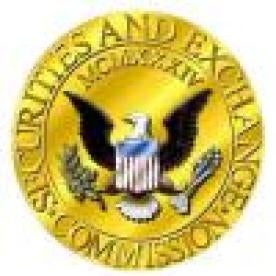With only 19 days left before the SECs Form SD filing deadline, there is still a lot of talk about consequences of the SECs April 7, 2017 Statement (“April 2017 Statement”). In that statement, the SEC staff indicated that it would not recommend enforcement action to the Commission if a company that is otherwise required to file a conflict minerals report as an exhibit to its Form SD does not file that conflict minerals report. Filers have been considering what the April 2017 Statement means for them and whether they will make any changes to their filings based on it.
In a small sampling, our quick review of the 31 calendar year 2016 Form SD filings made as of May 11, 2017 shows that 13 filed Form SDs only, 18 included conflict minerals reports as exhibits, and none appear to have omitted their conflict minerals reports based on the April 2017 Statement.
For those that have not yet filed, many completed most (or all) of their work for the calendar year 2016 filings by the time the April 2017 Statement was released and will be making the usual filings as the final step in the process. Some have indicated that their stakeholders want to see the descriptions of their due diligence measures. And, if the rule is repealed, this would be the last conflict minerals report required by the SECs conflict minerals rule, and companies may be taking the opportunity to describe their conflict minerals diligence efforts one last time.
For future years, even if there is no specific US law requiring it, companies in a number of industries (including electronics, of course) will continue to ask their suppliers for completed CFSI conflict minerals reporting templates. And, some may continue to provide public disclosure about their supply chain transparency, responsible sourcing, and conflict minerals due diligence efforts and successes.
For years, the conflict minerals guidance from the SEC was unchanged. But, since January of 2017, actions by the new Congress, the Trump Administration (including its appointees), and opposition to those actions have brought conflict minerals back into the headlines. It remains unclear what changes to the rule might come from the SEC or from Congress or if it will be repealed entirely. As companies are preparing this year’s filings, they can consider the current state of affairs:
-
Democratic Senators have objected (in writing) to the April 2017 Statement, arguing that the SEC staff (and then-Acting Chairman Piwowar) did not have the authority to take actions that would, in their words, repeal or modify the requirements of the rule. This letter came after an earlier letter asking the Inspector General of the SEC to investigate then-Acting Chairman Piwowar’s January 31, 2017 action to reconsider the conflict minerals rule, questioning whether that action was authorized or justified. Now that Jay Clayton has been sworn in as SEC Chairman, we will be watching for indications of his position on non-financial disclosures like those required by the conflict minerals rule.
-
NGOs have objected to any action to repeal or reduce obligations under the conflict minerals rule as well. See the comments of Amnesty International to SEC regarding re-assessment of conflict minerals rule. So, we can be sure that NGOs (in particular, Development International, the leading reviewer and scorer of conflict minerals disclosure) will call out and publicize the names of companies that do not include the full complement of disclosures they are expecting.
-
The Financial CHOICE Act 2.0 was passed by the House Financial Services Committee on May 4, 2017. The bill includes a repeal of Section 1502 of Dodd Frank, the section of Dodd Frank that required the SEC to issue the conflict minerals rule. The bill is now headed to the full US House of Representatives for consideration. If the repeal of Section 1502 becomes law, the SECs conflict minerals rule would be repealed as well.
-
But, even if the Financial CHOICE Act passes in the House, it will face fierce opposition in the US Senate. An invigorated Senate minority will likely attempt to block the bill by filibuster (which would create a “super-majority requirement” for passage). Because there seems to be near unanimous support for the conflict minerals rule by Democrats, it is possible that a deal could be proposed to keep Section 1502 in exchange for votes from Senate Democrats on the overall measure.
-
If Section 1502 does remain law, some action should be taken with respect to the text of Section 1502 to address the US Court of Appeals’ August 2015 ruling that a portion of the conflict minerals rule’s disclosure requirements (and possibly Section 1502’s disclosure requirements) violates companies’ First Amendment rights.
-
If Congress takes some action to address the impact of the First Amendment ruling, it should jump at the chance to re-work the independent private sector audit (IPSA) requirement. Because the IPSA is not a “financial audit,” Section 1502 required the IPSAs to be conducted using the US Government Accountability Office Government Auditing Standards (commonly referred to as the “Yellow Book”). But, Yellow Book does not fit the conflict minerals rule disclosure perfectly, and using it as the standard creates its own set of issues and difficulties. Because the guidance in the April 2014 SEC Statement has given filers a pass on IPSAs (under certain circumstances), these issues and difficulties have not yet fully played out and they certainly have not been addressed. This issue has been discussed and commented on at length by Douglas Hileman of Douglas Hileman Consulting at www.DFCMAudit.com. Other provisions of Section 1502 (including those requiring actions by the State Department, Comptroller General and the Commerce Department) could also be reconsidered.
Stay the Course
Bottom line – although there is legislative action underway to repeal Section 1502, the SECs conflict minerals rule could remain in place, either as is or as amended. So, companies would be wise to make their filings of their Form SDs as required by May 31, 2017 and then continue their due diligence efforts and procedures until there is updated guidance or final action on Section 1502 and the conflict minerals rule. After that updated guidance or final action, companies will be able to determine what steps they will take for calendar year 2017, either with or without Section 1502 and the conflict minerals rule.




 i
i


